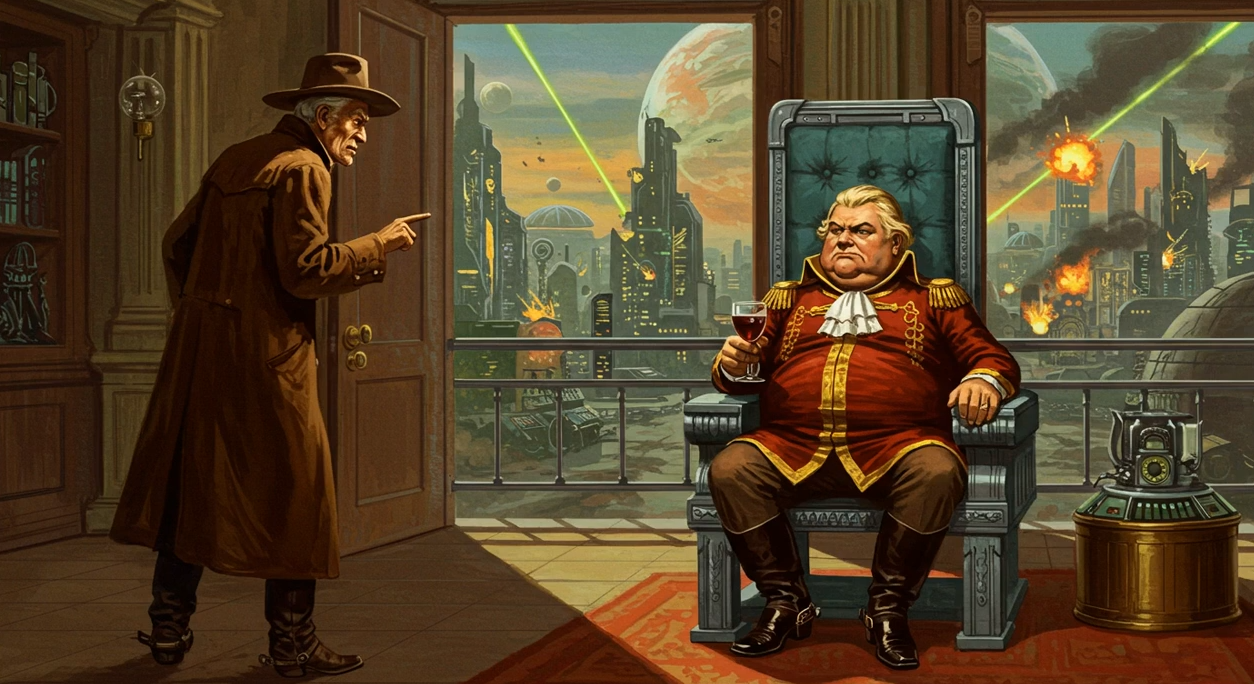Ionian Revival
"You can't simply silence a voice calling for democracy. Every martyr you make becomes an echo chamber of a hundred more. We manage the Ionian Revival not by the sword, but by entropy. Let them bicker, fragment, and tire. Kill only when you're sure no one is listening."
"If they want to vote, let them vote with bullets. We'll tabulate the results in blood. There's no room in Wolf for ideologues who forget who built the graves they walk over."
Athenian Dreams on Martian Dust
The Ionian Revival began not as a rebellion, but as an idealistic academic movement born in the Martian Library of Steel. The Neamhan Clan Scholars, enamored with the preserved records of Earth’s earliest direct democracies, became evangelists for a radical return to participatory governance. Inspired by the likes of Pericles and the Atlantic Rim United’s final throes, they posited a world where every citizen had a voice—regardless of the complexities of interplanetary logistics. Finding little fertile ground for their ideas on Mars, a world of iron-fisted warlords and stratified technocrats, they relocated to Neptune. But even Neptune’s chaotic armed-voter model, a brutal descendant of pirate councils and anarcho-militias, proved anathema to their vision. The Revivalists craved structured debate and informed consensus—not mob justice.
The Ashes of New Parthenon
In 310, the Ionian Revivalists journeyed to the untamed Wolf System to found New Parthenon, a colony meant to be a shining beacon of democratic idealism. For fifty years they built a functional society—at least by their standards. But power, even in a democracy, corrupts. Under the leadership of the charismatic but kleptocratic Olgevny Nipostanyy, New Parthenon strayed from its ideals. When they filed a Notice of Separation from the Pan-Solar Consortium in 360, the Wolfguard under Marshall Immozene Gegentot treated it not as a philosophical statement, but an act of rebellion. In one swift campaign, the militia was crushed, the leadership executed, and the colony razed. Survivors were scattered across Wolf or sent crawling back to Sol. The dream, it seemed, was over—but the idea had taken root.
Democracy in Echo Chambers
Today, the Ionian Revival exists as a trans-Solar whisper network of thinkers, agitators, and ideologues. Without a fixed home, they thrive in forums, secret symposiums, and subversive publications. Unlike their forebears, modern Revivalists do not seek independence—they want systemic change. From the battered ruins of New Parthenon grew a patient movement that believes in dissolving the entire Pan-Solar Consortium and replacing it with a direct, post-national democracy. But without a charismatic figurehead, they drift. And when one does rise—an orator, a visionary, a planner—Terran Homestar Intelligence shifts from observer to executioner, ensuring that the movement remains leaderless. Ironically, it is the indifference and brutality of their opponents that gives the Revival its only real cohesion. The more martyrs they make, the louder the call for an age long thought dead.




Comments